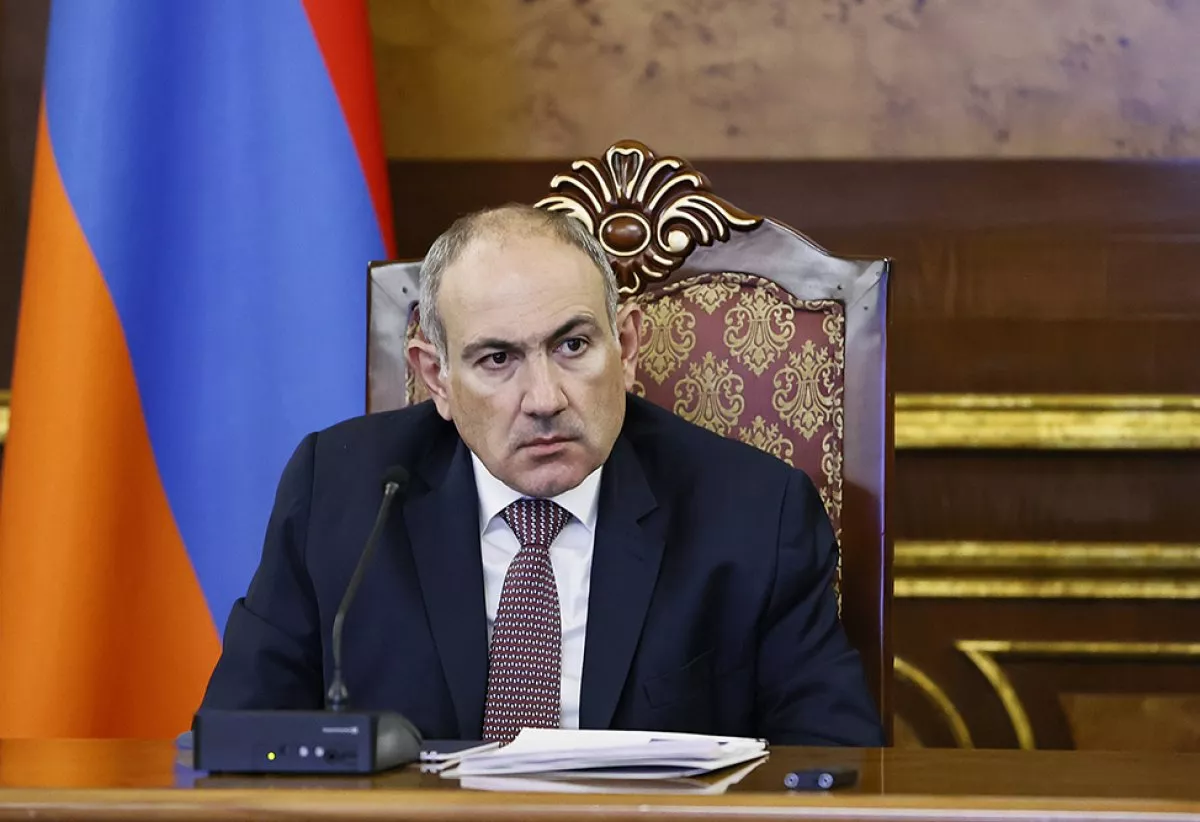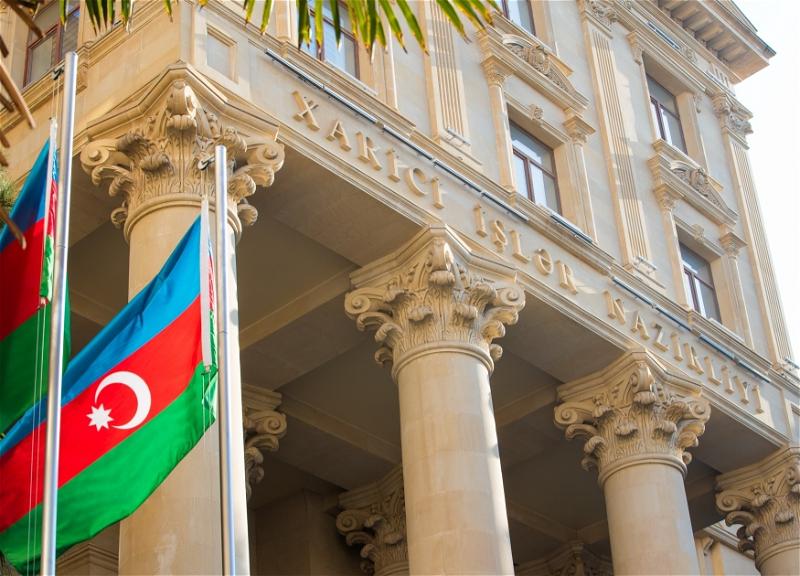Keyboard of lies: Exposing Armenia’s misguided "peace" agenda A response to Pashinyan’s article
Armenian Prime Minister Nikol Pashinyan recently harkened back to his journalistic roots with the publication of an article entitled "All the prerequisites for peace are in place." He timed the publication to coincide with his visit to France, which, evidently, is meant to give it the character of reflecting the unwavering sovereign will, fully supported by his suzerain. The article, concocted in the best traditions of verbosity, shows that, as always, Yerevan is busy turning everything upside down and blaming the healthy for the sick.
First of all, Pashinyan vehemently denies that Armenia is preparing for aggression against Azerbaijan. Instead, he points fingers at the country, accusing it of fostering aggression through the activities of the Western Azerbaijan Community. In an attempt to justify Armenia’s rapid military rearmament, he writes: "Do the reforms of the Armenian army have anything to do with Azerbaijan? Both yes and no. No, because as I explained above, Armenia has no plan, intention, or goal for any military action against Azerbaijan.Yes, because threats to the security of the Republic of Armenia are generated precisely in Azerbaijan."
Secondly, the Armenian Prime Minister once again portrays himself as a peace-loving leader, while proposing to conclude peace on fraudulent terms. "The agreed part of the peace agreement is sufficiently weighty and mature for signing, although the Republic of Armenia has proposed comprehensive solutions for the two non-agreed articles and is awaiting Azerbaijan’s positive response," wrote Pashinyan.

In other words, Yerevan once again pretends that there are no obstacles to signing the treaty, completely ignoring Baku's four demands, namely, the mutual renouncement of claims in international courts, the refusal to deploy third-country military forces on the border, agreement to dissolve the OSCE Minsk Group, and, most importantly, the removal of the clause from Armenia’s Constitution that contains territorial claims against Azerbaijan. These demands are entirely justified in light of the fact that Armenia was the aggressor state, having occupied 20 per cent of Azerbaijan's territories for nearly thirty years, and committing acts of ethnic cleansing against Azerbaijanis.
Instead of expressing remorse for these crimes, Yerevan presents completely inadequate proposals, as if Armenia were not a former aggressor, but a noble adversary that has come to the conclusion about the necessity of a peace based on parity: "The Republic of Armenia has submitted a written proposal to Azerbaijan on the establishment of mechanisms for reciprocal arms control and joint investigation of border incidents, and is awaiting Azerbaijan’s positive response."
The Ministry of Foreign Affairs of Azerbaijan, through its spokesperson Aykhan Hajizada, provided a pointed commentary on Prime Minister Pashinyan's article. Among other remarks, Hajizada emphasized the contradictions in Pashinyan's stance: "Interestingly, the Prime Minister who is advocating for the right to have military capabilities, represents a country that in addition to 30 years of military occupation, throughout three years since the end of the 44-day war kept more than ten thousand strong-armed formations equipped with heavy weaponry in the territory of Azerbaijan, despite the commitment it undertook under the Trilateral Statement.
Since the end of the 44-day war, Armenia’s military spending has almost tripled, reaching $1.6 billion in 2024 from approximately $600 million in 2021. Moreover, based on recently signed military contracts, Armenia mostly obtains offensive weaponry that can hit long inside the territories of Azerbaijan.
Military build-up justification by Armenia is insincere and poses a direct security threat against Azerbaijan taking into account the fact of ongoing territorial claims in the Constitution and legal acts of Armenia, as well as the resurgence of revanchism."

One could conclude the discussion here, but we believe it is important to highlight a crucial detail in Pashinyan's article, which unequivocally exposes the revanchist nature of the current Armenian government. In his words: "Now, let us see this in combination with the staged trial taking place in Baku, Azerbaijan’s billion-dollars procurement of weapons, and official Baku’s aggressive rhetoric, only to make it clear that real threats are being generated in Azerbaijan against the security of the Republic of Armenia."
In other words, Pashinyan has gone so far as to describe the trial of those accused of war crimes as "staged." Is there any need for further proof that, by showing such disrespect for the court, he is effectively endorsing the war crimes committed against Azerbaijan and its people?
It is no coincidence that this point was also highlighted by a representative of Azerbaijan’s Ministry of Foreign Affairs. Aykhan Hajizada, while reminding of Armenia's support for the separatist regime, noted that even today, instead of supporting the trial of those accused of war crimes, Armenia dismisses it as a "staging." This further proves that Armenia is not genuinely interested in uncovering the truth.
It is no coincidence that the representative from Azerbaijan’s foreign ministry also pointed this out. Aykhan Hajizada, while highlighting Armenia's support for the separatist regime, reminded that even today, instead of acknowledging the trial of those accused of war crimes, Armenia labels it a "staging." This proves that Armenia is not interested in uncovering the truth.
Thus, and we must emphasize this once again, official Yerevan has firmly entrenched its unconstructive position in the negotiations, effectively limiting the scope of progress to the process of delimitation and demarcation of the border. While this could be seen as a positive step, potentially providing a foundation for resolving remaining contradictions, this is undermined by Armenia’s rapid rearmament, fueled by its patrons.
Pashinyan’s visit to Paris is likely to be marked by a recalibration of strategies and a reassessment of possibilities, which is quite logical in light of the potential, albeit partial and temporary, loss of emotional ties between Yerevan and Washington due to the departure of the Democrats from the White House. At the same time, Paris and Yerevan appear keen to maintain a bellicose stance, which may explain the recent surge in demagogic journalism, exemplified by the Armenian prime minister’s latest article.








